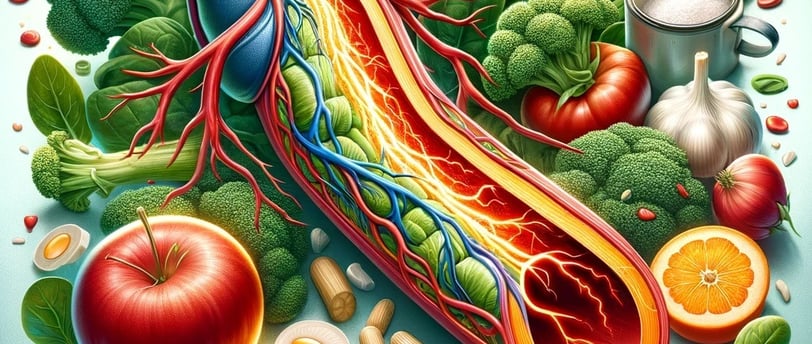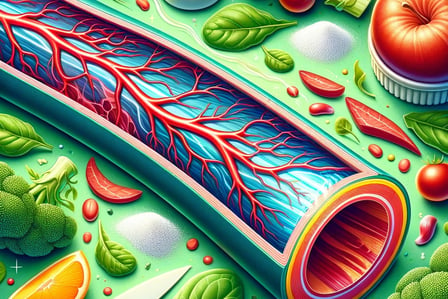Unlocking the Secret to Artery Health
The Power of Vitamin K in Preventing Atherosclerosis


In a world where heart disease reigns as the number one killer, there's a nutrient hero that doesn't wear a cape – it's Vitamin K, and it's here to save your arteries. Dive into the fascinating world of this essential vitamin and discover how it can help purify your arteries and prevent the formation of atherosclerotic plaques.
The Atherosclerosis Conundrum:
Recent studies have spotlighted a critical food component and vitamin crucial in preventing atherosclerotic plaques. Given that heart disease is a leading cause of death globally, understanding this vitamin's role is more than just academic curiosity – it's a health imperative.
The Modern Medicine Dilemma:
Are you disillusioned with modern medicine's quick-fix approach? Join the club. The real solution lies not in the medicine cabinet but in your kitchen.
The Microbiota-Artery Connection:
Studies on lab mice, though not everyone's cup of tea, reveal a startling truth: a sterile internal environment leads to severe inflammation and easy development of atherosclerotic plaques. There's a direct link between the microbiota in your gut and plaque formation in your arteries.
The Biofilm Factor:
Astrological studies show that atherosclerotic plaques in human arteries contain bacteria that form a biofilm, contributing to the narrowing of arteries. This discovery shifts the focus from cholesterol alone to a more holistic view of heart health.
Vitamin K to the Rescue:
Enter Vitamin K, particularly K2. It prevents calcium from depositing in the arteries and directs it to the bones. While it's been famous for its partnership with Vitamin D in bone health, its role in cardiovascular health is now taking center stage.
The Vitamin K Paradox:
Supplementing with Vitamin K doesn't reduce cardiovascular risk, but getting it naturally from foods does. The key lies in consuming foods rich in Vitamin K1, found in green leafy vegetables like cabbages, broccoli, and even iceberg lettuce.
The Green Leafy Solution:
It turns out that eating green leafy vegetables, rich in Vitamin K1, is directly associated with a lower risk of cardiovascular problems. This finding is especially pronounced in studies of centenarians, where high levels of Vitamin K1 are linked to better cognitive abilities and heart health.
The Vitamin K1 Advantage:
While supplementation with Vitamin K hasn't shown benefits, getting it through diet, especially K1 from vegetables, offers real advantages. It's not just about the vitamin itself but the synergy of nutrients in whole foods.
The Dietary Switch:
If you're looking to dodge heart attacks and strokes, make green leafy vegetables a staple in your diet. It's not just about Vitamin K1 or K2; it's about the whole nutritional profile of these powerhouse plants.
So, there you have it – the secret to cleaner arteries and a healthier heart isn't locked away in a pill bottle. It's as simple as adding more greens to your plate. Vitamin K might not be the sole savior, but it's certainly a key player in the game of heart health. Eat your greens, and let your heart thank you later!



